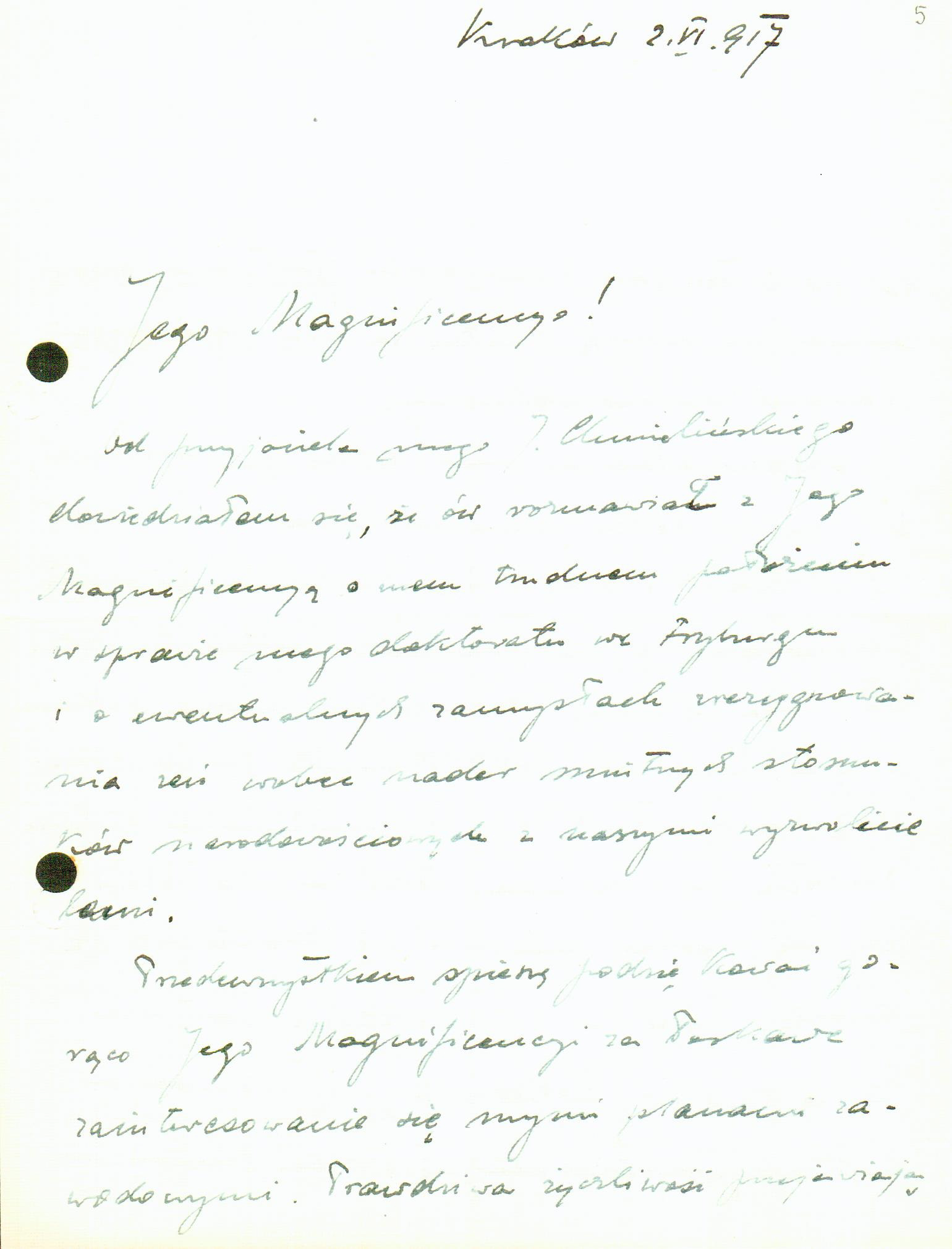
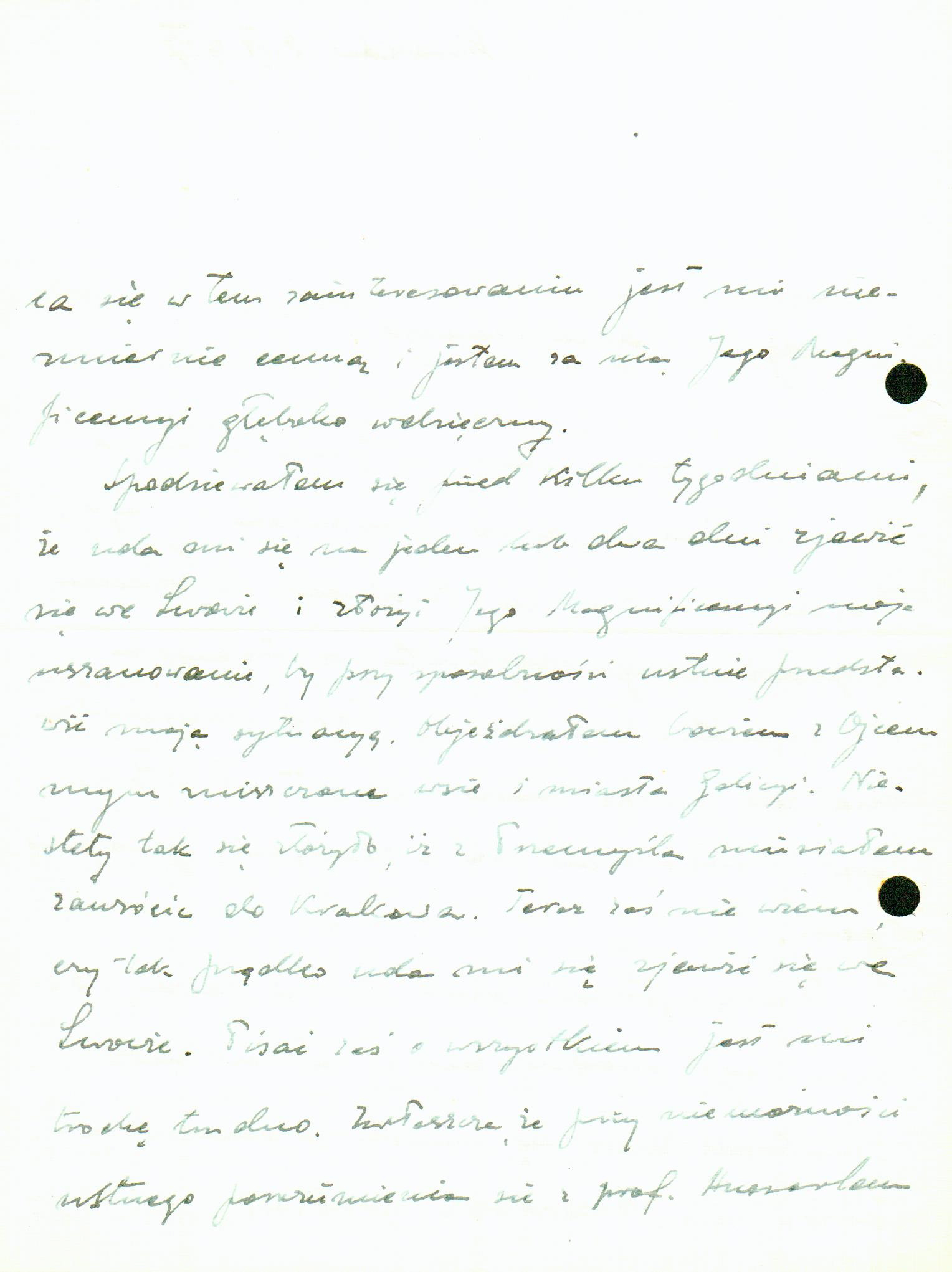
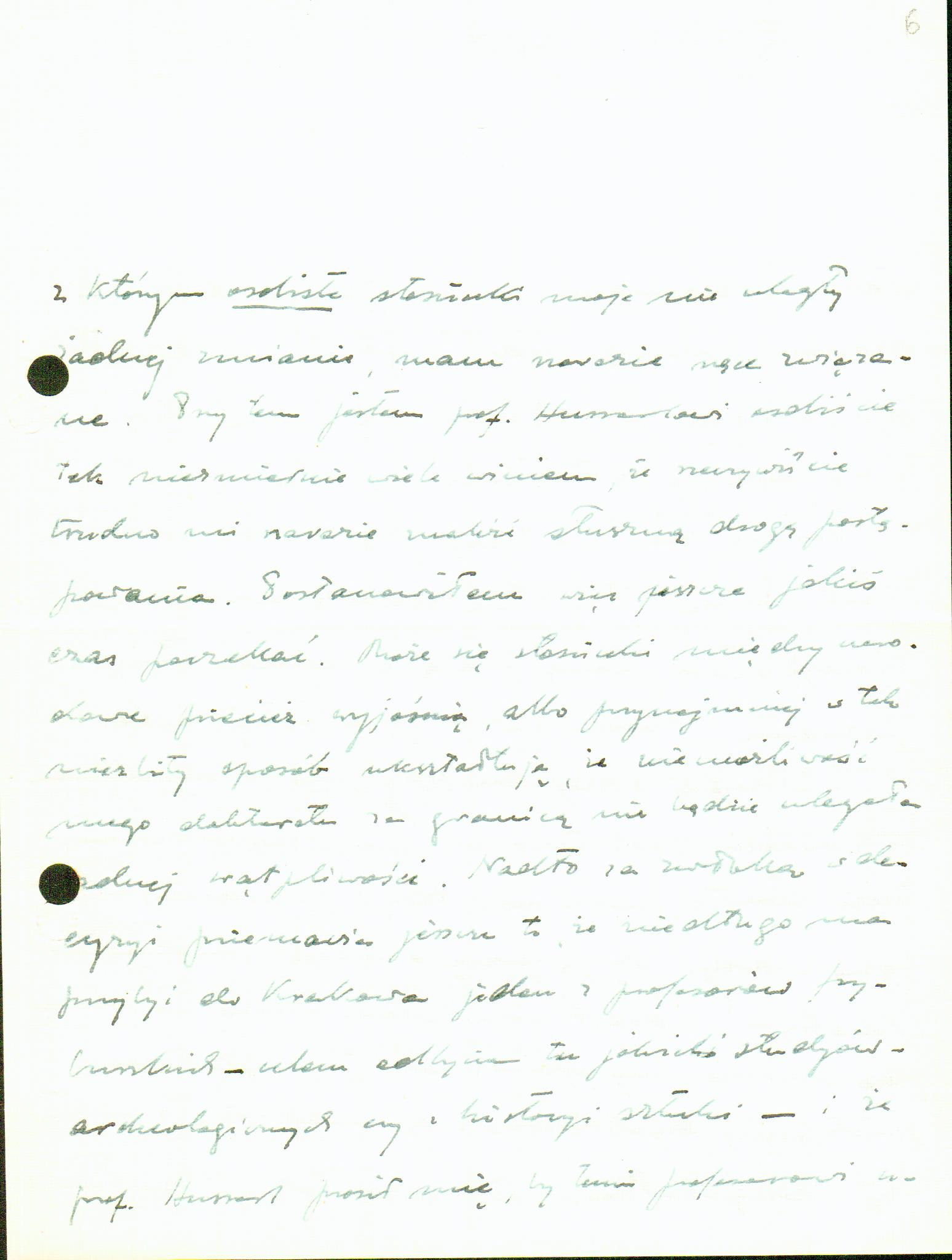
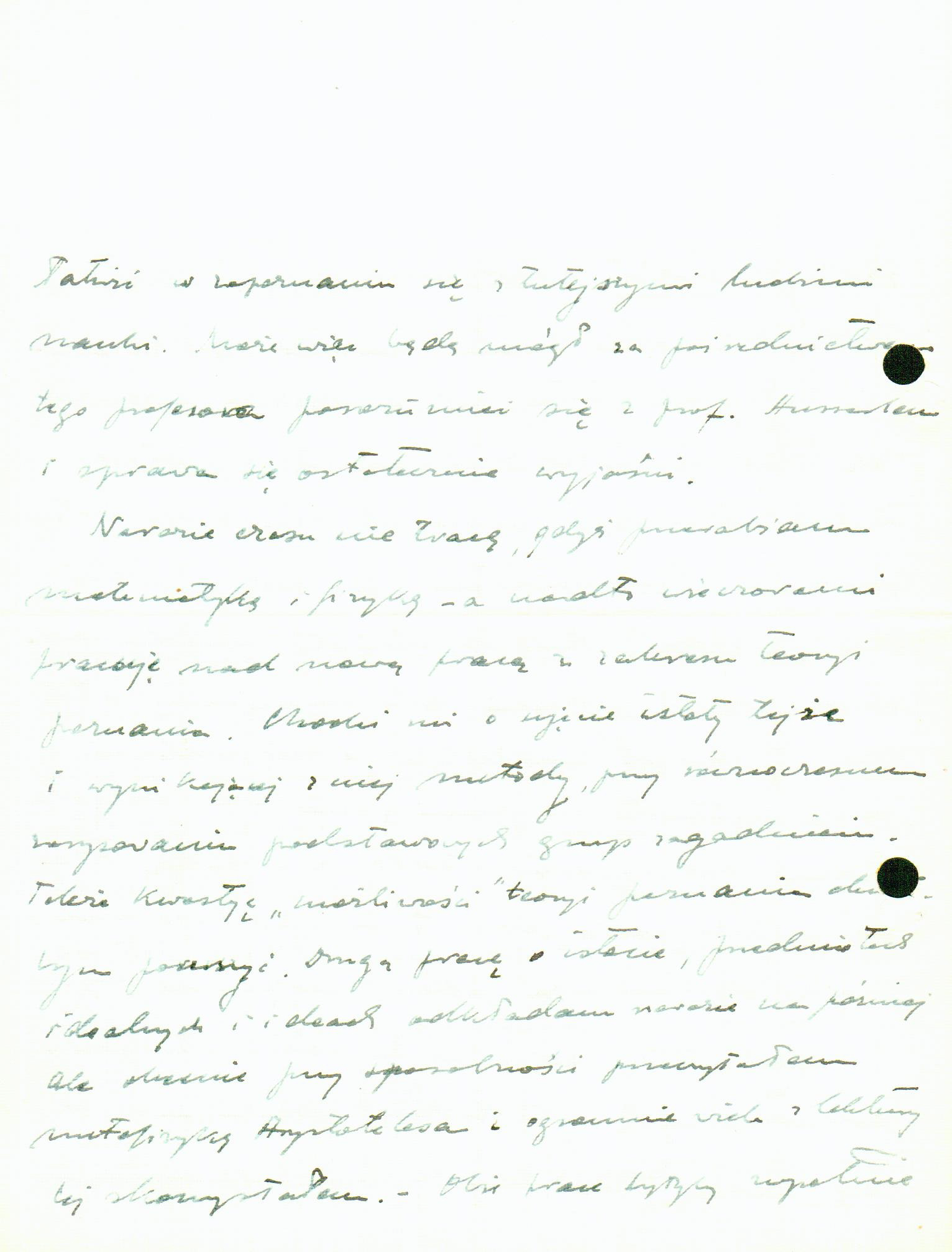

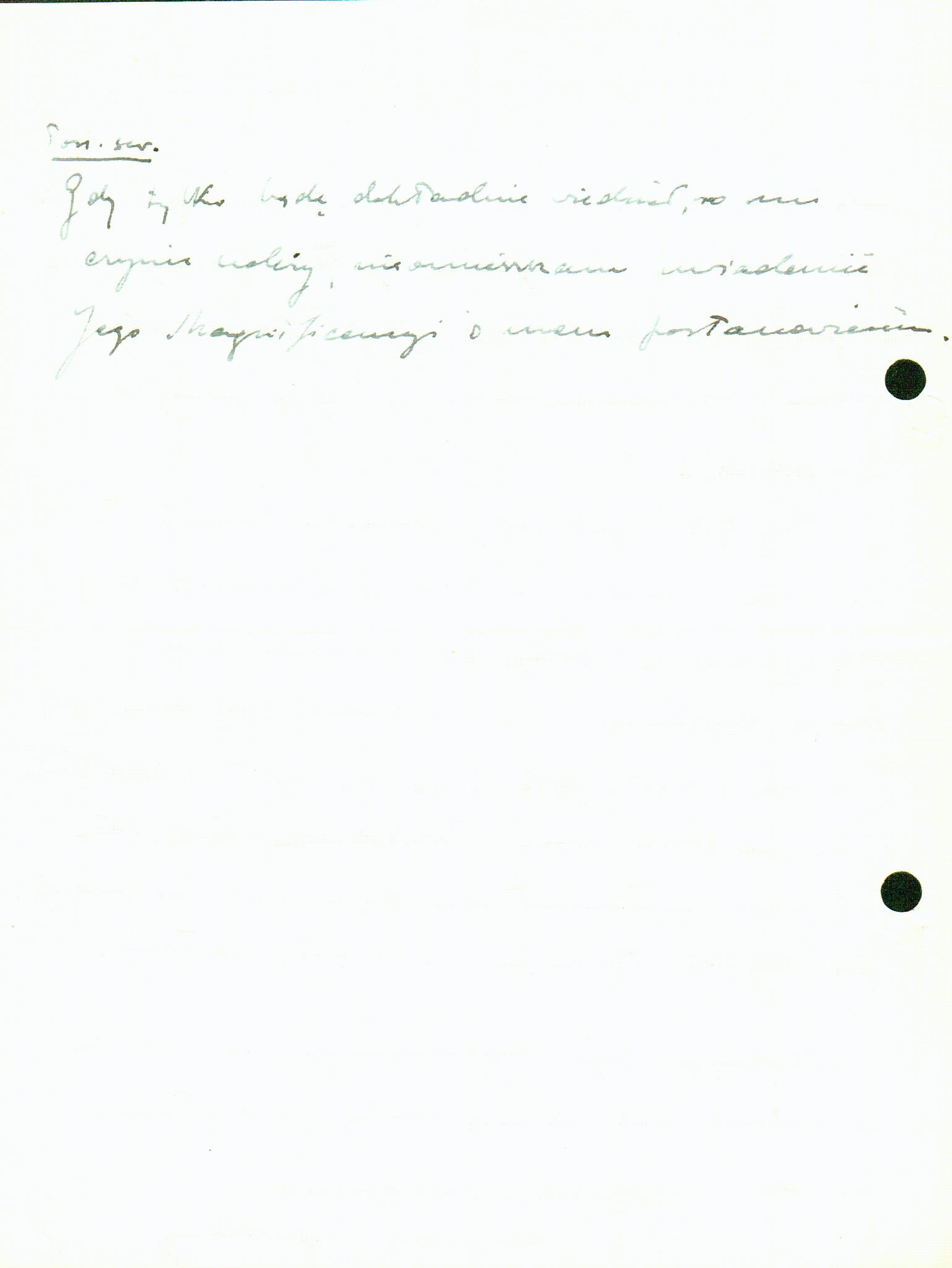
Letter to Kazimierz Twardowski written 02.06.1917
Cracow 2/6/1917
Your Magnificence!
I’ve learned from my friend J. Chmieliński [O1] that he spoke with Your Magnificence about my difficult position concerning the matter of my doctorate in Freiburg and about thoughts of possibly giving it up in view of our very sad national relations with our liberators.
First of all, I hasten to fervently thank Your Magnificence for Your gracious interest in my professional plans. The true kindness manifested in this interest, for which I am profoundly grateful to Your Magnificence, is extremely precious to me.
Some weeks ago I was expecting I’d manage to show up in Lviv for one or two days and pay my respects to Your Magnificence, and to take the opportunity to present my situation in person, as I was touring the devastated villages and cities of Galicia with my father. Unfortunately, it so happened that I was obliged to return to Cracow from Przemyśl. As of now, though, I don’t know whether I’ll manage to make an appearance in Lviv very soon. Writing about the whole thing is a bit difficult for me, especially since, given the impossibility of speaking in person to Prof. Husserl, with whom my personal relationships have not changed at all, my hands are tied for the time being. In this respect I personally owe so much to Prof. Husserl that it’s truly difficult for me to find the right course of conduct. Thus I’ve decided to wait for some time. Maybe international relations will clarify themselves, or at least shape themselves so unequivocally that the impossibility of achieving my doctorate abroad will no longer be in doubt. Moreover, another thing arguing for a delayed decision is that one of the Freiburg professors is supposed to come to Cracow soon – with the purpose of conducting some studies, either archaeological or related to art history – and that Prof. Husserl asked me to facilitate this professor’s acquaintance with the local academics. Perhaps, through the mediation of this professor, I’ll be able to communicate with Prof. Husserl and the matter will finally be cleared up.
At the moment I’m not wasting any time, since I’m studying mathematics and physics ‒ and, what’s more, in the evenings I’m working on a new paper in the field of the theory of cognition. I’m concerned with an approach to its essence and the methods resulting therefrom, along with a simultaneous outline of a fundamental group of issues. I also wish to raise the question of the ‘potential’ for a theory of cognition. I’ve put aside another paper, on being, ideal objects, and ideas, for later, but at present, given the opportunity, I’ve read Aristotle’s metaphysics and have made use of a great many things from this reading. ‒ Both papers would be completely fundamental ‒ and thereby an enormous number of difficulties arise. Due to systematic considerations, however, I would prefer to finish them before finally writing the second part of the paper on Bergson.
With all these plans – I’m suffering here from the lack of an academic and particularly a philosophical atmosphere, alleviated from time to time by continued discussions with Dr Wasserberg[O2] , but these are not very frequent, as he’s busy in the hospital and doesn’t have much time. Meetings of the Philosophical Society, on the other hand, offer me almost nothing. But too bad. Somehow this period will have to be endured.
Thanking Your Magnificence once again for taking an interest in me, I send expressions of my most profound esteem
Roman Ingarden
Postscript
As soon as I know exactly what I need to do, I will not fail to inform Your Magnificence of my decision.
[O1]chyba Jan Chmieliński (1893‒1962), syn Józefa Chmielińskiego (1862 [?]‒1941), ale może odniesienie jest do ojca a nie do syna. W j. angielskim najczęściej podano albo imię i nazwisko albo nazwisko bez pierwszej litery imienia
[O2]Prawdopodobnie Ignacy Wasserberg (1879‒1942)
